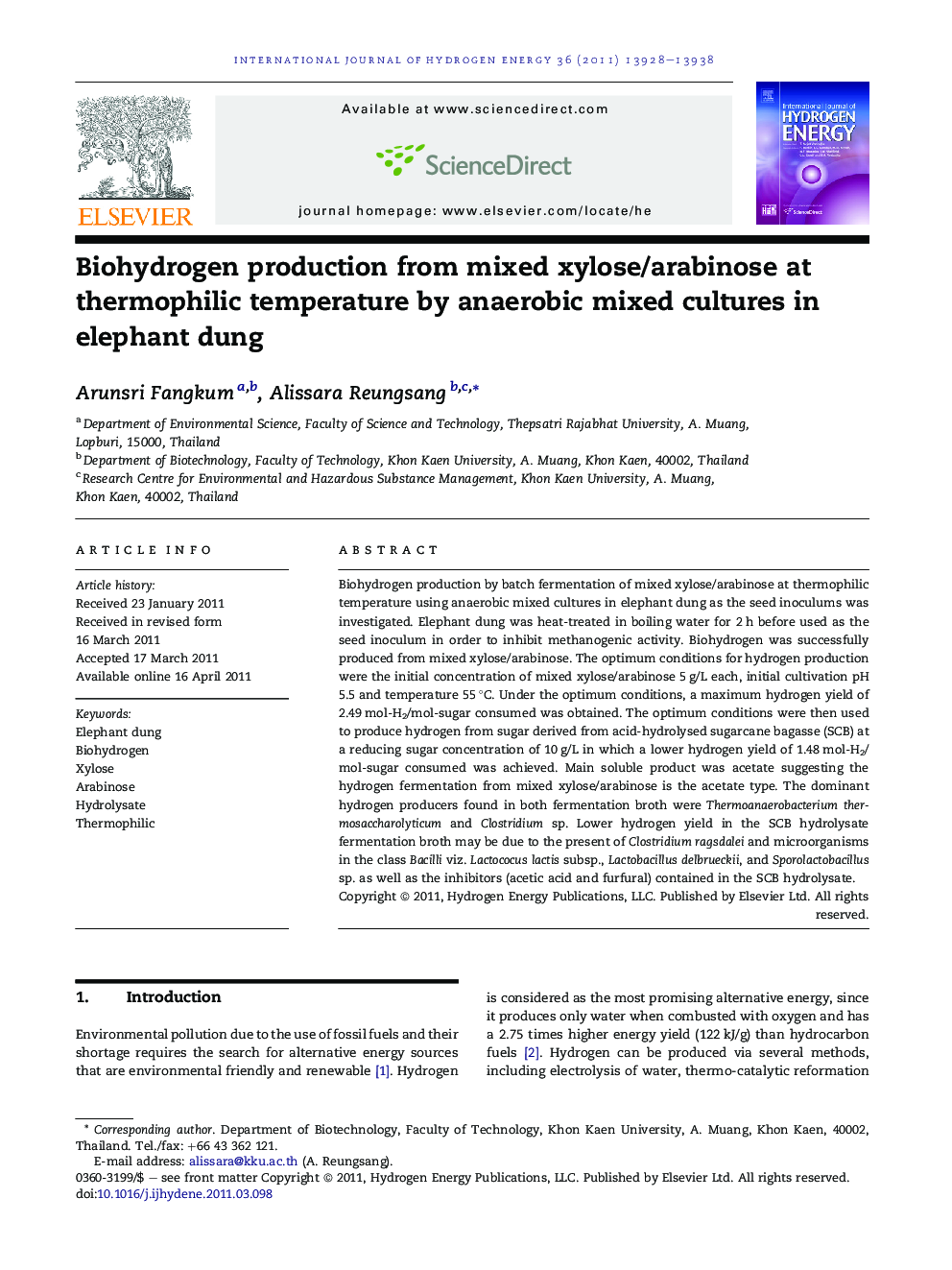| Article ID | Journal | Published Year | Pages | File Type |
|---|---|---|---|---|
| 1278746 | International Journal of Hydrogen Energy | 2011 | 11 Pages |
Biohydrogen production by batch fermentation of mixed xylose/arabinose at thermophilic temperature using anaerobic mixed cultures in elephant dung as the seed inoculums was investigated. Elephant dung was heat-treated in boiling water for 2 h before used as the seed inoculum in order to inhibit methanogenic activity. Biohydrogen was successfully produced from mixed xylose/arabinose. The optimum conditions for hydrogen production were the initial concentration of mixed xylose/arabinose 5 g/L each, initial cultivation pH 5.5 and temperature 55 °C. Under the optimum conditions, a maximum hydrogen yield of 2.49 mol-H2/mol-sugar consumed was obtained. The optimum conditions were then used to produce hydrogen from sugar derived from acid-hydrolysed sugarcane bagasse (SCB) at a reducing sugar concentration of 10 g/L in which a lower hydrogen yield of 1.48 mol-H2/mol-sugar consumed was achieved. Main soluble product was acetate suggesting the hydrogen fermentation from mixed xylose/arabinose is the acetate type. The dominant hydrogen producers found in both fermentation broth were Thermoanaerobacterium thermosaccharolyticum and Clostridium sp. Lower hydrogen yield in the SCB hydrolysate fermentation broth may be due to the present of Clostridium ragsdalei and microorganisms in the class Bacilli viz. Lactococus lactis subsp., Lactobacillus delbrueckii, and Sporolactobacillus sp. as well as the inhibitors (acetic acid and furfural) contained in the SCB hydrolysate.
